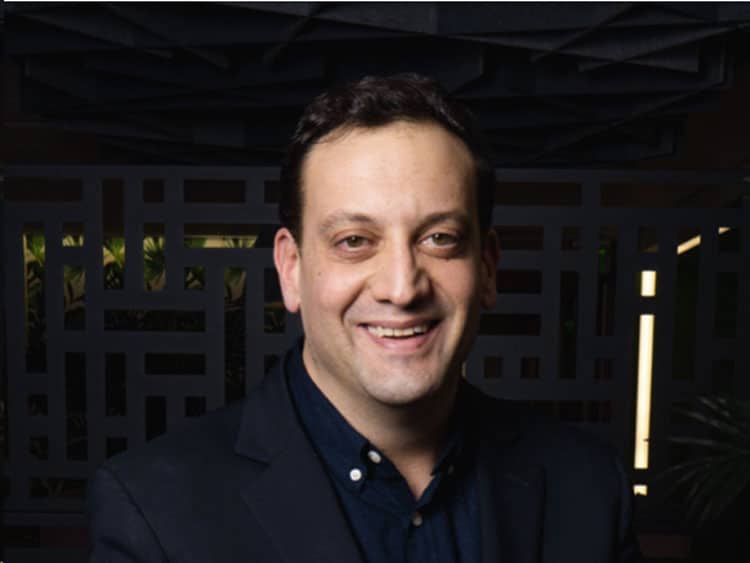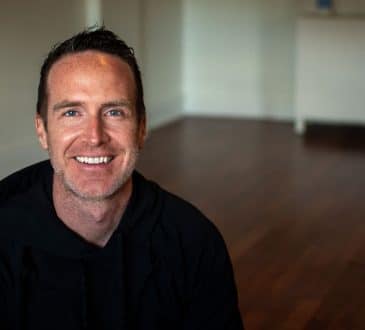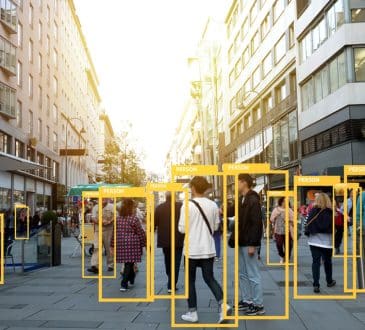The Future of Work Depends on AI as Essential Team Members

In a rapidly evolving work environment, artificial intelligence, and especially generative artificial intelligence, is no longer a distant concept but an essential player in reshaping industries. Nick Smith, CEO and Founder of Sailes, emphasizes the importance of AI as a partner, not a replacement for human labor. His insights offer a glimpse into how human-AI collaboration is fundamentally transforming work—particularly in sales—and how other sectors are following suit. As organizations seek to leverage AI’s capabilities, the future of work appears to be a balance between AI’s computational power and the uniquely human elements of creativity, empathy, and relationship-building.
Human-AI Collaboration Drives Sales Productivity
AI’s influence on sales has been profound, yet Smith is clear that AI’s role is to enhance rather than replace human teams. “Sales will always be a human-driven profession,” he states. “AI isn’t replacing sales teams—it’s elevating them.” According to Sailes’ Digital Labor study, AI increases productivity dramatically, delivering “16x human equivalency per user.” This allows sales professionals to focus on tasks that require their human touch—like building client relationships—while AI handles repetitive tasks like prospect identification or mass emailing.
This collaboration marks a transition in sales from a transactional process to one focused on strategy and human interaction. For example, AI can analyze data at speeds no human can match, surfacing insights that inform salespeople about the best strategies to approach a client. By handling the backend grunt work, AI creates time and space for professionals to focus on connecting with clients in more meaningful ways, effectively making sales a more human-centered practice despite the integration of advanced technology.
AI as an Essential Team Member Across Industries
While the sales department may be the initial frontier for AI, Smith foresees AI becoming essential in sectors far beyond sales. In marketing, for instance, AI can analyze vast amounts of audience data, enabling hyper-targeted campaigns and optimizing advertising strategies that were previously reliant on manual efforts. “Marketing, customer service, engineering, even healthcare—AI is finding its place in these fields by processing data at incredible speeds, offering insights that could take humans months to uncover,” says Smith.
In healthcare, AI supports doctors by analyzing diagnostic data, which allows physicians to focus more on patient care. Similarly, in engineering, AI can identify coding issues, streamlining processes and enabling engineers to focus on solving complex problems rather than debugging code. Smith emphasizes the potential of AI to not just automate but to radically enhance the roles within these industries. By handling data processing and task management, AI becomes a true collaborator, freeing up professionals to exercise their creativity and expertise.
The Multiplier Effect: Efficiency, Innovation, and Employee Satisfaction
The integration of AI into the workforce provides employers with more than just increased productivity—it creates what Smith calls a “multiplier effect.” AI enhances efficiency by working continuously without breaks, performing analysis, automating tasks, and generating valuable insights. This, in turn, improves employee satisfaction as workers are freed from mundane tasks and can focus on higher-level work that taps into their full human potential.
Smith draws from personal experience when discussing this concept: “My best ideas don’t happen in the grind; they come during a quiet Saturday morning or in the shower—those moments when I have the mental space to think creatively.” By giving employees the mental bandwidth to explore new ideas and solve problems creatively, AI sparks innovation across teams. The ultimate goal, Smith argues, is to enable people to be more human at work—creating an environment where strategic thinking, problem-solving, and relationship-building become the focal points, while AI handles the background work.
Avoiding AI Pitfalls: Thinking Big, Not Small
Despite its potential, adopting AI is not without its challenges. One of the major pitfalls Smith identifies is the risk of treating AI as just another tool or point solution. “We’re already seeing companies fall into the trap of buying AI in Name Only (AINO) solutions,” he warns. Many businesses purchase AI platforms that automate a few tasks but fail to fundamentally transform their workflows. Instead of asking, “How can we add more AI?” Smith advocates for companies to approach AI adoption with imagination. “The procurement process shouldn’t start with ‘We need more AI.’ Instead, it should start with a question: ‘What if we could ____?'”
This mindset encourages organizations to be audacious in their AI plans. If AI is as revolutionary as the internet, Smith argues, businesses should set higher ambitions than automating call scripts or task workflows. The real value of AI lies in reimagining what is possible, from reducing inefficiencies to unlocking new opportunities for human creativity and strategic thinking.
The Human Element in AI: A Collaborative Future
As AI becomes more integrated into the workforce, concerns inevitably arise about whether it will replace jobs. Smith’s response to this is clear: AI should amplify, not replace, human roles. “AI can’t replicate the nuanced skills humans bring to the table—especially in roles that require emotional intelligence, creativity, and relationship-building,” he says. In industries like sales, where trust and personal connections are critical, AI frees up professionals to focus on the aspects of the job that only humans can do.
Smith predicts that while some companies might attempt to replace human labor with AI, they will quickly realize that it is not sustainable. The competitive edge will come from the organizations that use AI to enhance their human workforce, enabling deeper personalization, better service, and higher-quality outcomes. Customers today demand these attributes, which only humans, supported by AI, can deliver. The future of work, according to Smith, lies in a partnership between AI and humans, where AI acts as a powerful assistant, allowing professionals to perform their most impactful work.
Preparing for the AI-Enhanced Future
As AI continues to evolve, workers will need to adapt by developing new skills. Digital fluency—knowing how to use AI tools effectively—is a must. However, Smith stresses that soft skills, such as creativity, problem-solving, and communication, will be just as important. “With AI handling the repetitive, task-driven aspects of work, employees have the space to re-engage in more meaningful, creative interactions,” he says.
Smith highlights the need for trust in this collaboration. As AI becomes more prevalent, there must be transparency and consistency in how AI tools are used and how they make decisions. Trust will be key to the successful integration of AI into the workforce. Ultimately, Smith believes AI will evolve from a tool to a trusted partner, working alongside humans to amplify their strengths and enable a more fulfilling work experience.
A Synergistic Future of Work
Looking ahead, Smith foresees a significant shift in how AI and humans will collaborate. While AI will handle more operational and data-driven tasks, humans will continue to drive creativity, innovation, and strategic vision. “The most remarkable and satisfying contributions in the workplace—those that require creativity, empathy, and big-picture thinking—will remain in the hands of people,” he asserts.
AI’s role will be to enhance human potential, creating a synergistic work environment where AI amplifies what humans do best. The future of work, in Smith’s view, is one where AI acts as a catalyst, pushing organizations toward greater productivity, creativity, and fulfillment—without losing the human touch that makes work truly meaningful.
Have you read?
Medical School Application: 12 Key Mistakes To Avoid.
Interview with Ernesto Morales, CEO of North Star Alliances.
Building Leaders from Within: The Business Case for Continuing Education.
Global Urban Governance in Focus at 9th Hangzhou International Sister City Mayors Conference.
Siemens Energy Extends CEO Christian Bruch’s Contract Through 2030.
Bring the best of the CEOWORLD magazine's global journalism to audiences in the United States and around the world. - Add CEOWORLD magazine to your Google News feed.
Follow CEOWORLD magazine headlines on: Google News, LinkedIn, Twitter, and Facebook.
Copyright 2025 The CEOWORLD magazine. All rights reserved. This material (and any extract from it) must not be copied, redistributed or placed on any website, without CEOWORLD magazine' prior written consent. For media queries, please contact: info@ceoworld.biz








